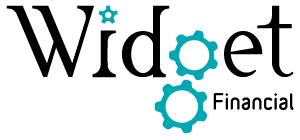If you’re like many small business owners, running your own business is an all-consuming endeavor.
In the face of everyday demands, choosing a retirement strategy for your business can become a casualty. The idea of establishing a plan could evoke worries about complicated reporting and administration.
If this sounds familiar, then you may want to consider whether a Simplified Employee Pension Individual Retirement Arrangement (SEP-IRA) may be right for you.
A SEP-IRA can be established by sole proprietors, partnerships, and corporations, including S corporations.
The advantages of the SEP begin with the flexibility to vary employer contributions each year from 0% up to a maximum of 25% of compensation, with a maximum dollar contribution of $66,000 in 2023, and $69,000 in 2024.1
Employees Vested
The percentage you contribute must be the same for all eligible employees. Eligible employees are those age 21 or older who have worked for you in three of the last five years and have earned at least $750. Employees are immediately 100% vested in all contributions.1
There are no plan filings with the IRS, making administration simple and low-cost. You only need to complete Form 5305 SEP and retain it for your own records. This form should be provided to all employees as they become eligible for participation.
Unlike other plans, a SEP may be established as late as the due date (including extensions) of your business’ tax filing (generally April 15th) for making contributions for the prior year.
A Menu of Choices
Each eligible employee will be asked to establish his or her own SEP-IRA account and self-direct the investments within the account, relieving you of choosing a menu of investment choices for the plan. The rules for accessing these funds are the same as those governing regular IRAs.
In most circumstances, once you reach age 73, you must begin taking required minimum distributions from a SEP-IRA and other defined contribution plans. Withdrawals from Traditional IRAs are taxed as ordinary income and, if taken before age 59½, may be subject to a 10% federal income tax penalty.2
Unlike the self-employed 401(k), which is only available to business owners with no employees, you cannot take a loan from your SEP assets. In most circumstances, you must begin taking required minimum distributions from your 401(k) or other defined contribution plan in the year you turn 73. Withdrawals from your 401(k) or other defined contribution plans are taxed as ordinary income, and if taken before age 59½, may be subject to a 10% federal income tax penalty.2
The SEP earns the “simplified” in its name and stands as an attractive choice for business owners looking to maximize contributions while minimizing their administrative responsibilities.
1. IRS.gov, 2024 2. IRAs have exceptions to avoid the 10% withdrawal penalty, including death and disability.







